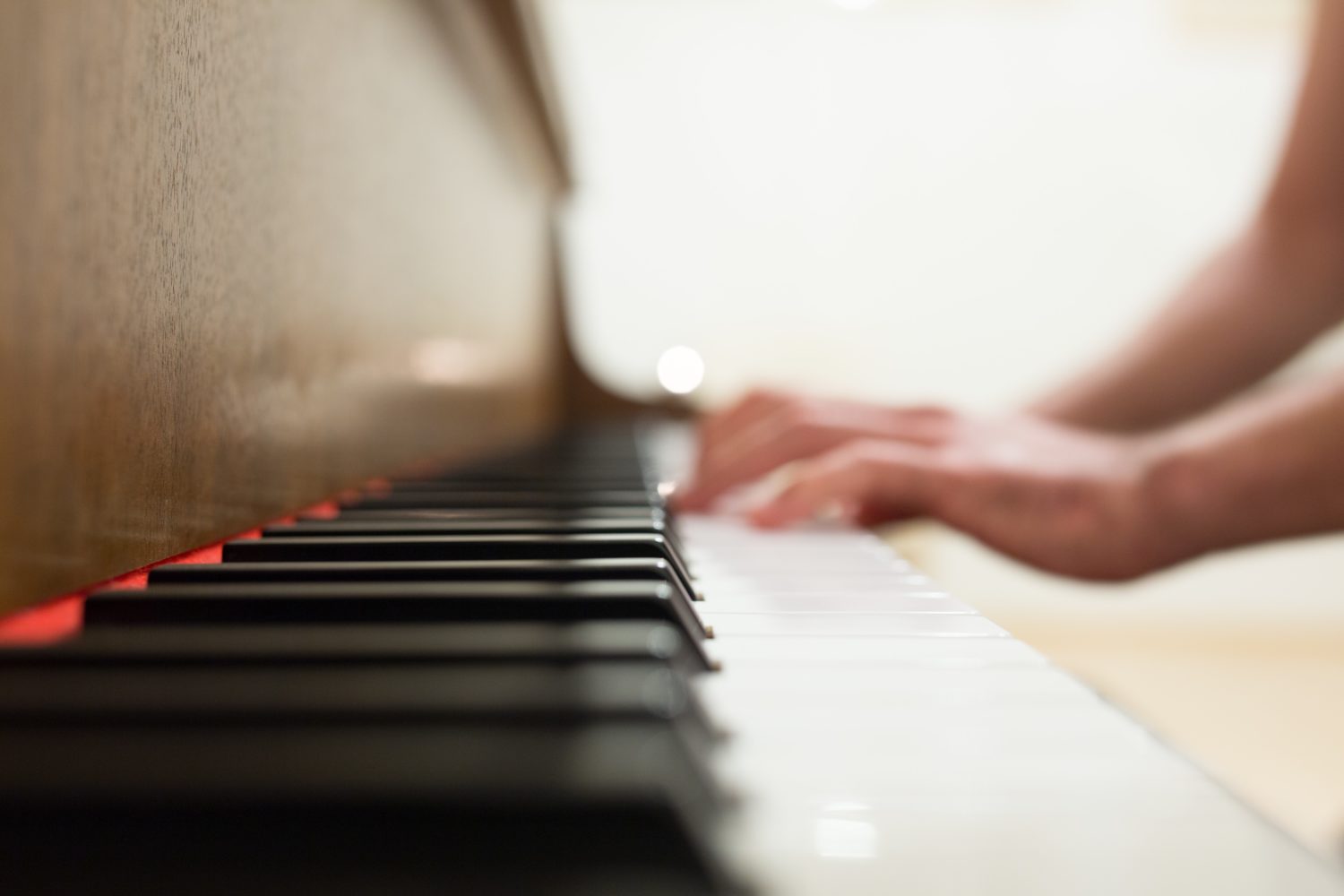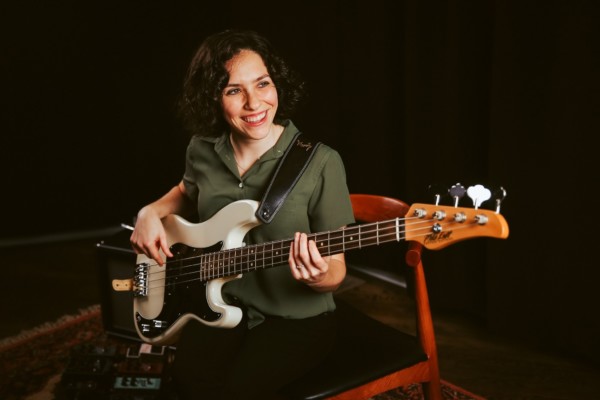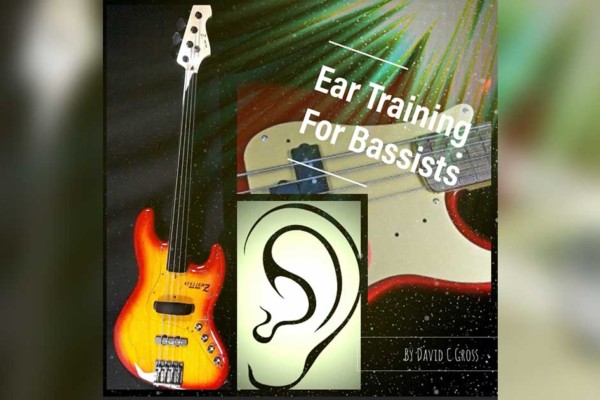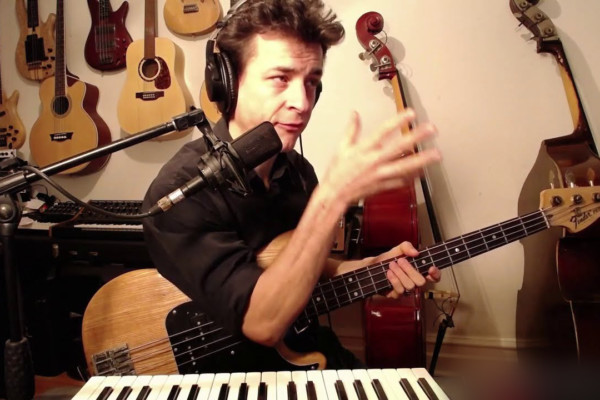Should I Play Keyboard For Ear Training?

Q: My name is Stéphane Tuni. I am a bass player in Switzerland. I play electric and double bass. In your columns for No Treble and SBL (which I really love), I see your keyboard in the background. Can you tell us a little bit about this keyboard in relation with ear-training for bass players (like intervals), singing intervals, singing chord progressions, singing voice leading, and so on?
A: Hi Stéphane. Thanks for the question!
That keyboard you see in the corner of my practice room is, sadly, only there for others to use for rehearsals. I’ve tried to pick it up a bit but it remains a mystery to me. I’ve always wished that I had the time to devote to it because I feel like one would gain such a superior understanding of harmony and chordal relationships after developing a moderate level of ability on the instrument.
But, you don’t need a piano to work on ear training!
When musicians speak of ear training, they are really just talking about:
1) the act of active listening combined with 2) the application of what to hear to what you play (that’s how I see it, anyway).
Even just listening to the melody of a song (or a bass line you like) and then trying to sing it back to yourself is an act of ear training.
Solfege is a great place to start with ear training although it isn’t absolutely necessary to worry about the solfege syllables. There are quite a few ways to work on ear training with your instrument and, yes, a piano is best because it is always in tune (well, assuming it’s actually in tune if it’s a real piano).
These can be applied to the bass, guitar, or any polyphonic instrument (and even monophonic instruments for the most part).
- Play a scale – now sing that scale back to yourself (do this in multiple keys and with multiple scale types)
- Play a scale and omit some notes with your instrument and sing the omitted notes
- Arpeggiate a chord and sing back the arpeggio
- Play a partial chord and try to sing the missing notes
- Sing the root motion to a jazz standard
- Practice singing different intervals by playing a note and trying to sing different intervals (major 3rds, perfect 5ths, etc…)
- Play a chord and try to sing all of the notes of that chord
- Listen to a melody or bass line that you want to learn. Listen over and over again until you can sing it. Then transcribe it using your sung line instead of the recording
You get the idea…
There are as many ways to start ear training as there are ways to play music. I’d say that the important thing is to start simply and be patient as you develop your listening abilities.
A good friend of mine here in Portland, Oregon (and an astoundingly talented musician) John Nastos wrote a great ear training app called “Harmonomics”. There are likely a ton of apps that could help you if you’re so inclined. A little guidance can go a long way but getting started is as easy as listening to music in the car and singing along!
Have fun.
Have a question for Damian Erskine? Send it to [email protected]. Check out Damian’s instructional books, Right Hand Drive and The Improviser’s Path.




I think you’re doing a DIS-service to yourself by NOT learning how to play keyboards for ear training. It’s a good way to learn harmony. If you’re not sure about some type of chord, you can go to the piano or some type of keyboard to pick the chords out. Definitely learn the keyboard.??
Thank you so much for your insightful articles on music and the bass in particular…I have both your books, have taken a couple lessons with you and met you in Philly at Gerald V’s badass
bootcamp…you were very kind to me even though I was an fledgeling bassist…I am still picking at the mountain with the spoon and the journey is most excellent…thank you for being a great teacher and human….Tracy J bassist
For those interested in the keyboard, particularly in the jazz tradition, any book by David Berkman is worth checking out. Two in particular: The Jazz Harmony Book, and The Jazz Singer’s Guidebook (which may be especially useful for ear training at the keyboard). Both are wonderfully written.